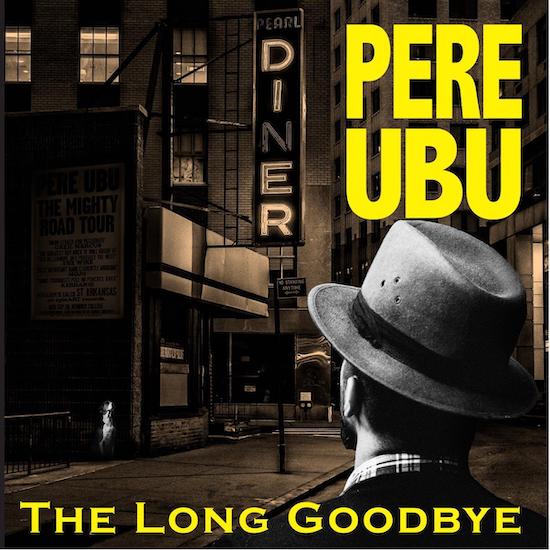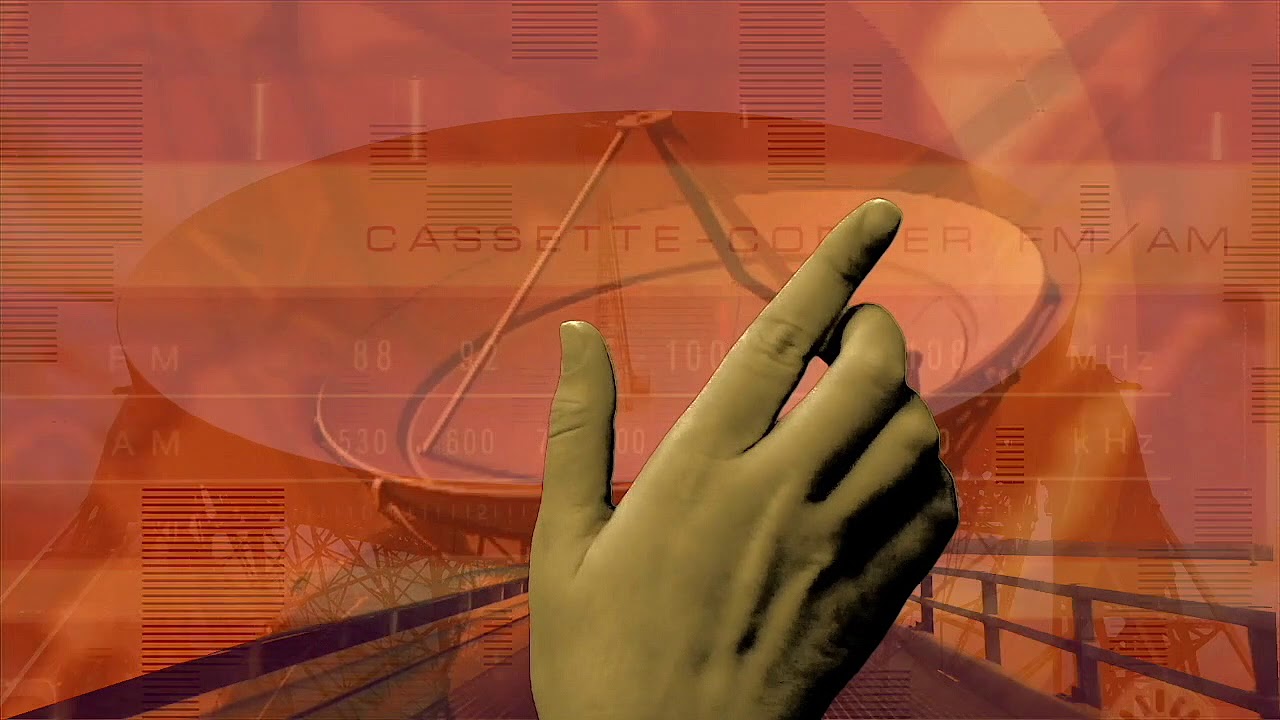Born out of main man David Thomas’s recent brush with mortality, Pere Ubu’s 18th studio album, The Long Goodbye, has been hailed as something of a departure for the band – if not the final chapter, then the end of a cycle before a new beginning. According to the album’s liner notes, Pere Ubu were forced to cut short the American leg of their 2017 tour when Thomas became critically ill. With his prognosis not looking hopeful, Thomas worked intensely in his studio over the course of a month, delineating the tracks for what he thought would likely be the last Pere Ubu album with the use of his collection of analog synths, drum machines and melodeon. Friends, including Van Dyke Parks, apparently espoused their belief that the resulting album was ‘perfect’, but Thomas further expanded the palette of the album by inviting other band members to add their own contributions to the already existing songs. “Some people wanted in and some wanted out,” resulting in some changes to the band’s lineup.
Augmented by current Ubu guitarist Keith Moliné, digital synthesiser wizard Graham ‘Gagarin’ Dowdall, long-term Ubu co-conspirators Robert Wheeler and Michelle Temple, on theremin and analogue synths and electric and upright bass respectively, Danish drummer and percussionist, P.O. Jørgens, and clarinettist Daryl Boon, The Long Goodbye stands as a unique work of archaic/futuristic sound against an already singular back catalogue of ever changing, always essentially the same ‘avant-garage’ music. Although Jørgens, who previously worked with Thomas on the David Thomas and Foreigners album Bay City in 2000, acquits himself well on the record, the apparent departure of Scott Krauss as the band’s drummer of many years, might well come as a disappointment to fans.
Thomas once claimed that Pere Ubu were not an experimental group, since “We know what we’re doing,” but arguably very few other bands have had such a lengthy career with as many reinventions and as few missteps. Having previously claimed that their 2013 album Lady From Shanghai was “dance music fixed”, and their 2014 release Carnival Of Souls a “fixing of prog-rock”, Thomas this time supposedly sets his sights on reinterpreting pop music in his own inimitable fashion.
It’s difficult not to take such proclamations as Thomas’s claim to have been listening to pop radio nonstop prior to recording the album with a pinch of salt. Whatever the reality behind that claim, opening track ‘What I Heard On Pop Radio’ provides a fascinating answer to the question implied by its own title. Gagarin and Wheeler together provide a dense electronic backdrop that’s equally banging and decorated with idiosyncratic whooshes and whirrs, like sonic curlicues of analogue sound. Seeming to delight in his hard-earned curmudgeonly status, Thomas declaims: “Save the emotional garbage for someone who’s gonna’ pretend much better than I do” and warns “they got somethin’ they wanna sell you.” A cycle of repetitive guitar licks and sputtering high hat percussion weave their way around a queasy melodeon riff. It’s deceptively simple stuff packed with a high density of intriguing incidental details.
When I interviewed Thomas in 2014, he decried the prevailing ‘wisdom’ that less was more, and expressed his own belief that density of information in passages of sound was a far more interesting prospect. This has been true of Pere Ubu’s working methodology for some time now, and it’s an approach that really pays off on The Long Goodbye. The minutiae of each song’s sonic environment reveals far more than a casual listen, making this an album best experienced through headphones.
‘Flicking Cigarettes At The Sun’ harnesses the kind of bass driven urgency of Modern Dance era but updates it to the post-information sickness era with its claustrophobic electro soundscape. ‘Road Is A Preacher’ is one of two tracks that come in at significantly longer than the ten minute mark – something virtually unheard of for the band, with the exception of the closing track on Carnival Of Souls. Unrolling like the cinematic reels of a sinister retro-futuristic road movie, the track distorts the listener’s perception of time over its 16:29 duration, attaining a kind of distended, decaying present by dint of subtle cycles of repetition.
‘Who Stole The Signpost’ begins with Thomas’ proclamation: “I came out here to find Harry Partch”. A beautifully transparent clarinet melody rises above electronically rendered Partch-esque percussion and a goofy, percolating keyboard line. The whole thing drones and hums like it’s liable to short-circuit and implode at any minute. Coming off like a synthetic successor to the track ‘Perfume’ from 1998’s Pennsylvania, ‘Fortunate Son’ details an uneasy waffle-house encounter with a music fan and ends with Thomas concluding: “Places that don’t exist have something in common, they’re real.”
‘The Road Ahead’ is another long track, at close to ten minutes, and the best of the lengthier entries, with some of Thomas’s best lyrics to date delivered in spoken word fashion. ‘Skidrow-On-Sea’, as the title would suggest, takes the album to its darkest point, allowing for a slight redemption of tone with the closing, melodeon driven ‘Lovely Day’.
With the CD edition of the album also including a bonus CD of a show in France from December 2018, where the band (including former member Chris Cutler on drums), played the album in its entirety, as well as a few classic older cuts, The Long Goodbye would have been a brilliant swansong for the band. Thankfully for fans of their truly unique music, Thomas has apparently responded well to treatment and he’s no longer sure that this will be his last album. The thought that it might have been, however, appears to have been a driving factor in reimagining Pere Ubu’s sound for this remarkable release.



